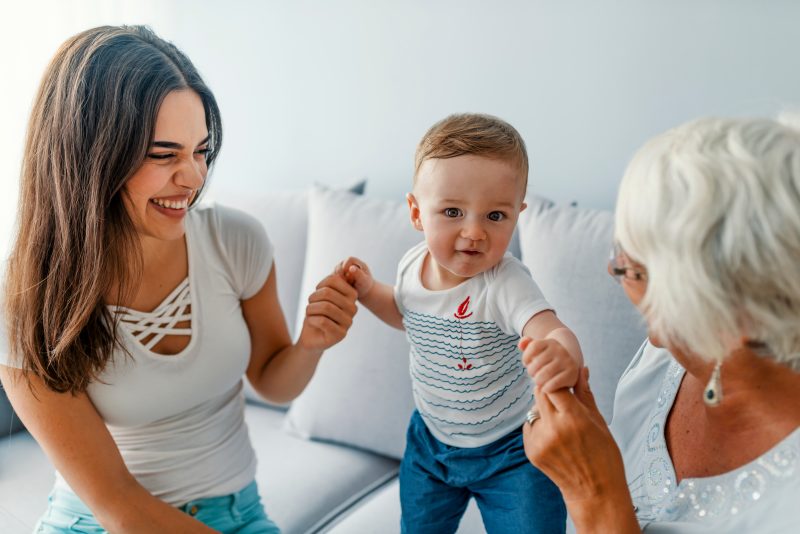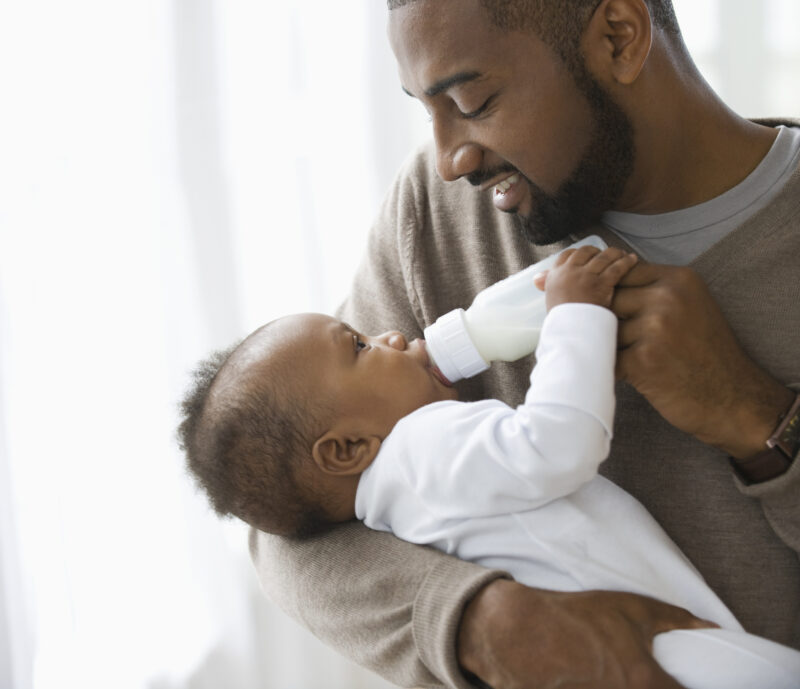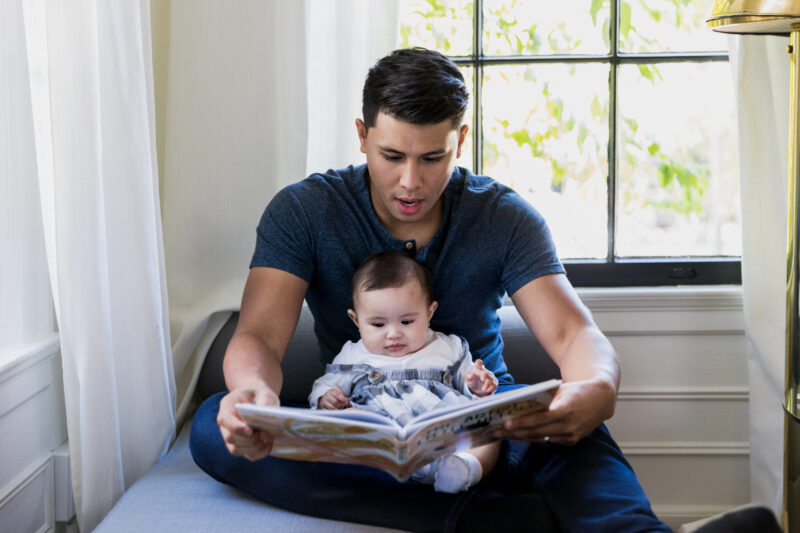
Television is no match for the personal interaction between baby and loving caregivers.
Patient families in Akron Children’s Locust Pediatric Care Group have the opportunity to participate in a pilot project focusing on literacy and brain development in their babies and toddlers.
Akron Children’s Locust Pediatric Care Group has teamed up with The TMW Center for Early Learning + Public Health, a research institute at the University of Chicago, and Summit Education Initiative (SEI) to offer interventions to promote literacy in a pediatric setting. In fact, Akron Children’s is the first children’s hospital to host this pilot. Drs. P. Cooper White and Diane Langkamp are leading the project at Akron Children’s.
While this project is limited to this one Akron Children’s primary care practice, and in particular, those families coming in for their babies’ first six months of well visits, the aim is to expand it to other practices in Akron in the future. Even now, all families can easily take advantage of the research conducted at the University of Chicago. The strategies are easy for parents to incorporate into everyday life.

Mealtime is a great time to talk to your baby and toddler.
Background
Dr. Dana Suskind, a professor of surgery and founder of the TMW Center, has long promoted the concept that caregivers are the primary architects of children’s brains.
A baby’s brain is unfinished at birth. In the first three years, billions of connections are created, building the circuitry that becomes the foundation for learning. Early experiences with responsive and loving caregivers drive those connections.
But society doesn’t do nearly enough to pass this powerful science along to parents and caretakers—the people in the best position to put it to use. That’s why Dr. Suskind launched the TMW Center in 2010. The team there develops and tests evidence-based programs to help parents provide the rich early-language environments proven to build children’s brains.
The 3Ts
The cornerstone of all TMW Center programs, including the “Ready to Learn” program being piloted at Locust Pediatric Care Group is the TMW Center’s “3Ts.” The Ts stand for:
Tune In
Be in the moment. Notice what your child is focused on and talk about that. Respond when your child communicates, including a cry or coo. Examples:
- “You must be telling me you’re tired. Let’s read a book and get ready for naptime.”
- “Look, here he comes. He’s a nice dog. I love his fluffy fur.”
- Or, when you notice your baby looking at a toy, “Look how it spins. It’s goes round and round.”
Talk More
Use a variety of words. Narrate day-to-day routines, such as diaper changes and tooth brushing and use details to foster curiosity. Examples:
- “Let Mommy take off your diaper. Oh, so wet. And smell it. So stinky! It will feel better and then we can get back to making dinner.”
- “Now, let’s pick out some apples for our grocery cart. We need three red apples and 1 green apple. That makes four apples in total for our recipe.”
- “Bath time is over. We will start drying your toes. Then legs. Your tummy, back and arms. The towel is warm and dry. You’ll be nice and clean for bedtime.”
It’s never too early to read aloud to children. When babies start talking, prompt them to point to pictures, repeat sounds and words, and answer questions related to the story.
Take Turns
Keep the conversation going. Respond to your child’s sounds, gestures and, eventually, words – and give him or her time to respond to you. Ask lots of questions that require more than yes or no answers. Examples:
- “Let’s clap hands to the music. One clap. Two claps. Now it’s your turn. Let’s sing along.”
- “That’s so silly. The cow in the picture says ‘Mooooo.’ Can you say ‘Moooo’?”
- “The little girl in the story looks sad. Why do you think she is sad?”
“The brain of a child grows, develops and even remodels in infancy and toddlerhood – and these changes are influenced by the child’s interaction with parents and caregivers,” says Dr. Langkamp. “Back and forth talk between a parent or caregiver provides building blocks for the child’s brain to grow. Although children can hear words from a TV or video, without the interaction with and the emotion of a caregiver, the words from TV and videos do not contribute to brain development in the same way. This early talk between parent and child can make a major difference in a child’s readiness for kindergarten or even success in school later on.”
For more information about the work of the TMW Center and the power of words, visit https://tmwcenter.uchicago.edu

It’s never too early to read to your baby.










